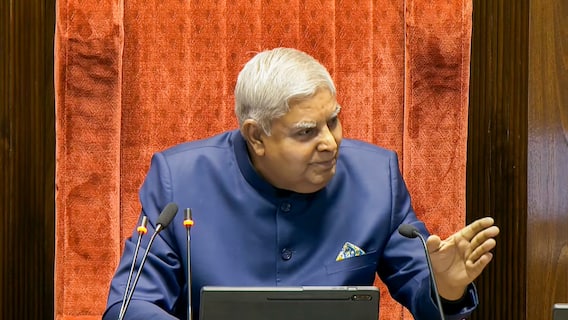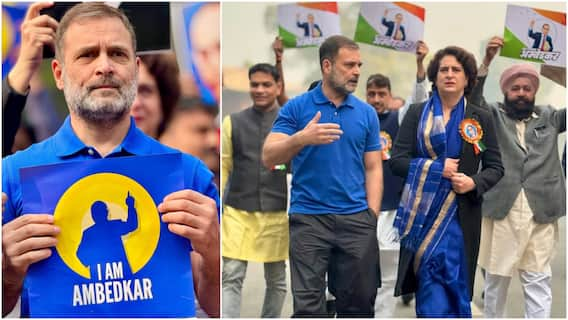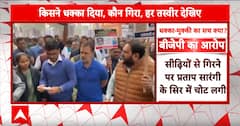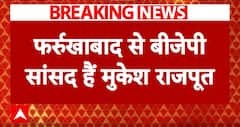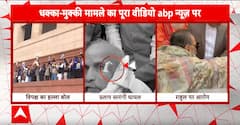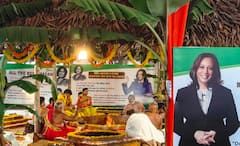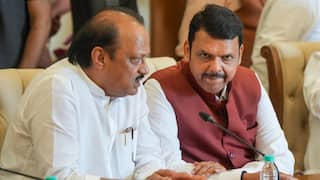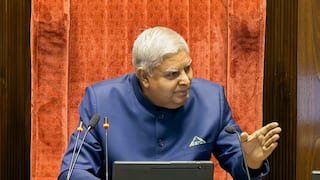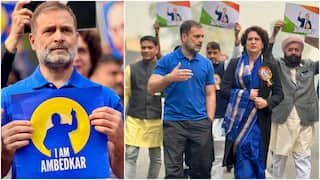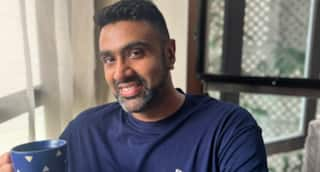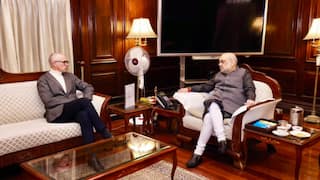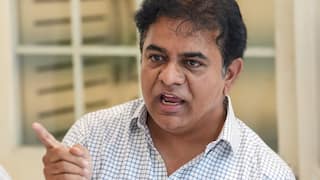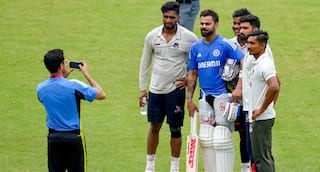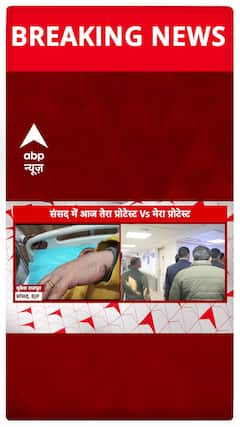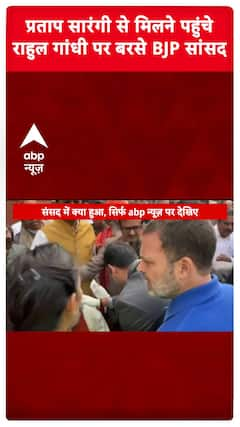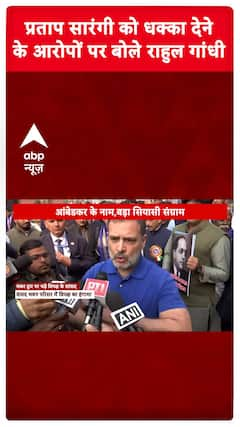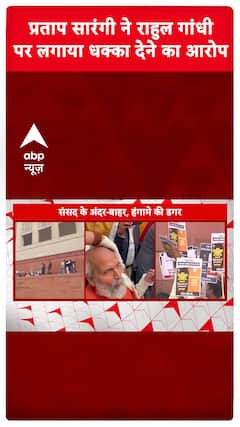'Permissive Canadian Attitude Towards Terrorists': Jaishankar Reveals Why India Was 'Compelled' To Suspend Visas
Jaishankar voiced India's concern over Canada's "permissive" stance towards individuals who endorse violence and said that the country is providing a platform for terrorists and extremists.

Union External Affairs Minister S. Jaishankar on Friday commented on the ongoing discord between India and Canada, stemming from allegations made by the Canadian Prime Minister Justin Trudeau alleging Indian government's involvement in killing of Khalistani leader Hardeep Singh Nijjar. Jaishankar addressed this issue during a discussion in Washington D.C., asserting that the accusations levelled against India were inconsistent with its policies. He extended an offer to investigate any specific concerns if provided by the Canadian government.
Jaishankar voiced India's concern over Canada's "permissive" stance towards individuals who endorse violence and said that the country is providing a platform for terrorists and extremists.
"This has been an issue of great, friction for many years with Canada. But in the last few years, it has come back, very much into play, because of what we consider to be a very permissive Canadian attitude towards terrorists, extremist people who openly advocate violence. And they have been given operating space in Canada because of the compulsions of Canadian politics," he remarked, as per news agency PTI.
Additionally, he lamented the safety concerns of Indian diplomats stationed in Canada, citing public intimidation of diplomats as a reason for temporarily suspending visa services. Jaishankar highlighted, "Today, our diplomats are unsafe going to embassy and consulates in Canada. They are publicly intimidated and that has compelled me to suspend visa service in Canada. So, I did speak about it with (US NSA) Jake Sullivan and (US Secretary of State) Antony Blinken."
In reference to the Khalistani elements in Canada, he mentioned the intersection of organised crime, human trafficking, secessionist movements, and violence emanating from Indian nationals existing in Canada.
Jaishankar stated, "We consider there's a permissive Canadian attitude to terrorists and people who openly advocate violence. They have been given operating space in Canada because of Canadian politics. For us, it is certainly been a country where organised crime from India mixed with trafficking in people, secessionism and violence."
Regarding his conversation with US NSA Jake Sullivan and US Secretary of State Antony Blinken about Canada, he said that both shared the US's views and assessments on this whole situation. "I explained to the Americans a summary of India's concerns. I think hopefully we both came out of those meetings better and forward," he added.
India-Russia Relations A Stable Exception: S Jaishankar
Jaishankar emphasised the unique stability characterising India's relationship with Russia amidst the turbulence observed in other international relationships. He noted that India-Russia ties have, over the last seven decades, demonstrated remarkable steadiness compared to the fluctuating dynamics of major global relationships. He pointed out that India-Russia relations, although not spectacular, have remained resilient. Jaishankar stated, "The India-Russia is very exceptional. It has been very steady."
"If you consider international relations over the last 70 years, the US-Russian relations, China-Russia relations, the US-China relations... pretty much every big relationship in the last 70 years has seen a great deal of volatility which had sharp ups and downs. The India-Russia is very exceptional. It has been very steady. It may not be spectacular, so it may have stabilised at a certain level, but it has not seen that kind of ups and downs which your relationship with Russia or China's relations with Russia or Europe's relationship with Russia has seen through and that's in itself a statement," he said, as per news agency ANI.
"I think as a consequence of what is going on in Ukraine, it seems to me clear that in many ways Russia's relationship with the West has broken down and in that case, it's logical that Russia focuses more on the Asian side of Russia, though historically, Russia has always seen itself as a European power," he added.
In light of the ongoing situation in Ukraine, Jaishankar predicted that Russia might shift its focus away from Western powers towards Asia and other regions, in a bid to reshape its international engagement. He noted, "I would predict a Russia that would consciously focus on the non-western world away from Europe, United States and look towards Asia and other parts of the world."
'World Badly Needs Reglobalisation': Jaishankar On India's Role In 'New Pacific Order'
Jaishankar discussed the global need for a form of "reglobalisation" to address the inherent risks of the prevailing model of globalisation, which has been in place for the past 25 years. He emphasised, "The world is badly in need of some form of 'reglobalisation'. That globalisation is itself is undeniable, it has struck very deep roots, it has tremendous benefits nobody doubts that but the particular model of globalisation which has evolved over the last 25 years obviously has a lot of risks inherent in it and today how to address those risks and create a safer world is part of the challenge the pacific order."
The External Affairs Minister touched upon the Quad, a diplomatic grouping comprising India, the United States, Japan, and Australia. He highlighted the group's growth from a bureaucratic level in 2017 to a presidential and prime ministerial forum in 2021. India is set to host the Quad Summit next year.
Jaishankar noted, "In 2017, it was done at a bureaucratic level in the US, in 2019 it became a ministerial forum and in 2021 it became a presidential, prime ministerial forum... It seems to be growing from strength to strength and we will have the privilege of hosting the Summit next year in India."
UN Lacks Credibility And Effectiveness In Absence Of India: S Jaishankar
Jaishankar proposed the concept of India's engagement in the Pacific region, noting the significant economic and trade activity that occurs to the east of India. He underscored the idea of India contributing to the Pacific order as indicative of global rebalancing trends. Jaishankar stated, "It's probably, a new idea, something very different to think of India, in terms of, the Pacific region, the Pacific community of nations."
He went on to stress India's long-standing demand inclusion in the United Nations Security Council (UNSC) as a permanent member, "We do believe today that when the most-populous and the fifth largest country is not there in UNSC, then that UN lacks credibility and effectiveness."
"The underlying culture of India is deeply pluralistic...The diversity and the layers that we get in India are truly unique and in multiple access the most diverse space in the world. That diversity will always have its own conversations and discussions, and there will be attempts to get a certain balance right, there will be corrections and recorrections...We actually are a much more looser society where there is almost a natural inclination to disagree and that is our national character..."
'India Had A Culture Of Vote Banks': S Jaishankar On Minorities' Condition In India
When asked about the issues and condition of minorities in India, Jaishankar asserted that the true test of governance lies in ensuring equitable access to amenities, benefits, and rights without discrimination. He highlighted the changes underway in the country, including the establishment of a social welfare system, providing citizens with access to housing, healthcare, food, finance, and education.
The minister contended that increased digitisation and "faceless governance" have contributed to a "fairer society". "If you look at India today, it's a society today where there is a tremendous change taking place, the biggest change happening today in India is the creation of a social welfare system in a society which has less than $3,000 per capita income. Nobody has done that in the world before," he remarked.
He further noted, "Now, when you look at the benefits of that, you look at housing, you look at health, you look at food, you look at finance, you look at educational access, health access. I defy you to show me discrimination."
He attributed some grievances to political factors stating, "This is a globalised world you will have people gripe about it, and much of the griping is also political. We also had a culture of vote banks and there are sections who had in their own eyes a certain privileged access who today may resent the fact that they don't... these will be the turbulence of a democratic society."
Trending News
Top Headlines







